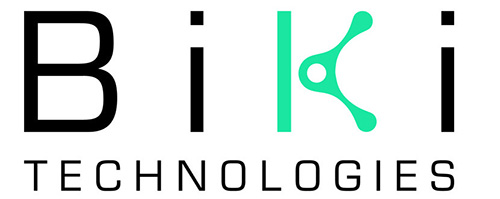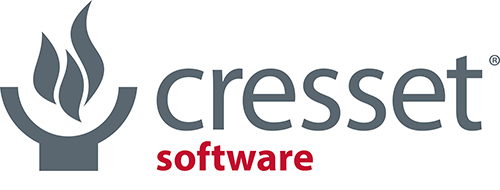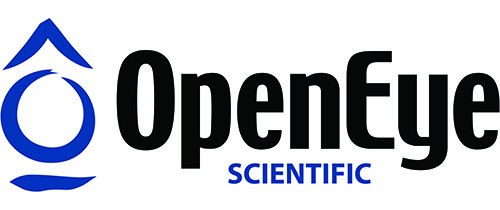2018 Workshop on Free Energy Methods, Kinetics and Markov State Models in Drug Design
Introduction
This first three days of the this workshop focus on free energy techniques—the latest innovations and use cases, force field parameterization as it touches these techniques, and sampling practices, among other things. The last two days focus on the study of the kinetics of biomolecular processes at the atomistic and systems scales, via in-silico approaches such as Markov State Models and other suitable techniques.
We as organizers believe that these techniques are even closer than before to making an impact in appropriate drug discovery applications, by allowing physics-based prediction of physical properties such as binding affinity, selectivity, solubility, and membrane permeability. However, a number of challenges still remain. This workshop provides a unique opportunity to assess where we are today and what challenges must be tackled next to bring the potential of free energy techniques to bear on real-world applications. We also seek to identify particular problems in drug discovery where these methods can have an impact.
Our goal in this workshop is to bring together experts from pharma and supporting industries, as well as academia, in an intense and focused workshop to identify challenges and help chart the path forward. We are particularly interested in hearing about use cases, pitfalls and their solutions, and so on. We also firmly believe we can learn a great deal from failure, so we hope participants will go beyond just highlighting success stories to provide more detailed insight into successes and failures.
Dates and Locations
The meeting runs Monday, May 14th to Friday, May 18th, 2018.
Monday Night, May 14th
A reception will be held on Monday night at Silicon Therapeutics, 451 D Street, Boston MA, 02210
![]()
Tuesday, May 15th to Friday, May 18th
The remainder of the meeting will be hosted at The Novartis Institutes for Biomedical Research, Auditorium, 250 Massachusetts Ave, Cambridge, MA, 02139

On street metered parking is usually limited to two hours. There are public lots around the area. You can check public parking location and rates at http://en.parkopedia.com/parking/cambridge.
If you're coming via public transportation, take the subway red line to Kendall Square.
Registration
2/20/18 Update: Registration for the Free Energy portion of the meeting is now closed, except for speakers and meeting sponsors, due to capacity limits. Please contact Mike Schnieders (michael-schnieders@uiowa.edu) or another meeting organizer if you missed the registration window and would like consideration. Registration for the Kinetics and MSM portion of the meeting remains open.
Please register to attend either the entire meeting (Monday - Friday for $100), the Free Energy centric days (Monday - Wednesday for $65), or the MSM centric days (Thursday and Friday for $65) by following this link.
Once you register, if you plan to present a poster and/or would like to be considered for an oral presentation, please submit an abstract by following this link.
Workshop Themes
As in our previous workshop, participants should feel free to discuss work that highlights problems or limitations, present ideas on how these limitations may be overcome, and discuss new developments that are underway.
- Applications of Free Energy Methods in Drug Discovery
- Multiple Examples of Lead Optimization for Different Biomolecular Targets
- New Commercial Simulation Algorithms
- Free Energy Simulations: What Didn't Work and Why
- Sampling and Convergence
- Force Field Functional Form (i.e. to polarize or not to polarize) and Parameterization Quality
- (Bio)chemical Effects: Protonation States, Tautomers, Salt Effects, Biological Unit, etc.
- Simulation Set-up and Parameter Sensitivity
- Extending the domain of applicability of free energy calculations
- Handling metals (would double the number of systems we can apply free energy calculations to)
- Dealing with chemical effects (constant-pH, tautomers, counterions)
- Force field parameterization for more exotic chemistries
- Multiple binding sites / weak binders
- ADME-Tox and Physical Property Prediction
- Solubilities, Membrane Permeability and Partition coefficients
- HSA binding, hERG inhibition
- Cytochromes P450 Metabolism
- Kinetics and Markov State Modeling
- Optimization of Binding Kinetics
- Handling Large Conformational Changes
- New MSM Methodology for Drug Design
- Discovery of Allosteric Binding Sites
Sponsors and Social Media
We would like to thank the following sponsors:

|

|

|

|

|

|

|

|
Twitter hashtags: #drugalchemy #drugmsm; add #discuss if you have a discussion topic suggestion
Slack: https://alchemistry.slack.com
Schedule
The schedule of talks is shown below, including scheduled time for discussion.
Tuesday, May 15th
Free Energy Simulations in the Real World moderated by Woody Sherman
- 8:30-9:00 Coffee and pastries
- 9:00-9:10 Welcome and Opening Remarks
- 9:10-9:40 Keynote by Mark Murcko
- 9:40-10:10 Christina Schindler, Merck: "Large scale free energy calculations in drug discovery at Merck KGaA, Darmstadt, Germany"
- 10:10-10:30 Coffee break
- 10:30-11:00 Guanglei Cui, GSK: "Assessing the Performance of Relative Affinity Predictions: from Null Model to Null Systems"
- 11:00-11:30 Aysegyl Ozen, Pfizer: "Lessons from retrospective FEP on NAMPT."
- 11:30-12:00 Katharina Meier, Bayer
- 12:00-1:30 Lunch at Novartis with a moderated discussion.
Increasing the Domain of Applicability of Free Energy Simulations: Salt, pH, Force Fields and Proteins moderated by Jay Ponder
- 1:30-1:45 Greg Ross, Memorial Sloan Kettering: "Biomolecular simulations under realistic macroscopic salt conditions."
- 1:45-2:00 Marie Laury, Washington U. in St. Louis: "Calculating host-guest binding free energies via the AMOEBA polarizable force field."
- 2:00-2:30 Jana Shen, U. of Maryland: "How to incorporate pH in protein-ligand binding free energy calculations."
- 2:30-3:00 Christopher Bayly: “SMIRNOFF and the Open Force Field Consortium.”
- 3:00-3:20 Coffee break
- 3:20-3:50 Matteo Aldeghi, Max Plank: "Predictions of ligand binding affinity changes upon protein mutation using non-equilibrium free energy calculations."
- 3:50-4:20 Charlie Brooks, U. of Michigan: "Probing Epistasis in Protein Design with High-Throughput Free Energy Methods."
- 4:20-4:40 Coffee break
- 4:40-5:10 JC Gumbart, Georgia Tech: "Conformational dynamics of HBV capsid proteins in free and drug-bound states."
- 5:10-5:40 Thomas Simonson, Ecole Polytechnique: "Accurate PDZ:peptide binding free energies with additive and polarizable free energy simulations."
- 5:40-8:00 Poster Session
Wednesday, May 16th
Beyond Binding Affinity: Simulations for Membrane Permeability, Polymorphs, Hydration and Pose Prediction moderated by John Chodera
- 8:30-9:00 Coffee and pastries
- 9:00-9:30 Chris Chipot, U. of Illinois: "Influence of the membrane composition on its permeability to drugs."
- 9:30-10:00 Michael Shirts, U. of Colorado: "Free energies of crystal polymorphs: what sorts of approximations can we get away with?"
- 10:00-10:30 Dave Huggins, Tri-Institutional Therapeutics Discovery Institute: "Estimating Atomic Contributions to Small-Molecule Hydration and Protein-Ligand Binding Using Free-Energy Perturbation."
- 10:30-10:50 Coffee break
- 10:50-11:20 Lucie Delmotte, KTH Teoretisk fysik: "GMM with cross-validation allows a robust estimation of free energies: application to the Calmodulin conformational ensemble."
- 11:20-11:50 Germano Heinzelmann, U. Federal de Santa Catarina: "APRprotein: Attach-pull-release calculations applied to bromodomains as a pose refinement and ligand ranking tool."
- 11:50-1:20 Lunch at Novartis and moderated discussion.
Advances in Theory and Software for Free Energy Simulations moderated by Jay Ponder
- 1:20-1:50 Sathesh Bhat, Schrödinger: "Solving Real World Drug Discovery Problems with Free Energy Calculations."
- 1:50-2:20 Jean-Philip Piquemal, UPMC: "Accelerating free energy evaluation with Tinker-HP."
- 2:20-2:50 Woody Sherman, Silicon Therapeutics: "Overcoming Discovery Bottlenecks on Challenging Targets using Molecular Simulations in an Integrated Biology/Chemistry/Physics Company."
- 2:50-3:10 Coffee break
- 3:10-3:40 Léa El Khoury, UC Irvine: "Absolute Binding Free Energy Predictions for Heat Shock Protein 90 (HSP90) Complexes."
- 3:40-4:10 Israel Cabeza de Vaca, Yale: "Estimating absolute binding free energies through Monte Carlo simulations."
- 4:10-4:30 Coffee break
- 4:30-5:00 David Ryan Koes, U. of Pittsburgh: "Docking Deeply: Molecular Docking with Deep Learning Potentials."
- 5:00-5:30 Pratush Tiwary, U. of Maryland: "Designing dynamical maps for biomolecules with statistical mechanics & predictive artificial intelligence."
- 5:30-6:00 Moderated Discussion on Grand Challenges in Free Energy Simulations by David Mobley - "It's like Deja Vu all over again."
Thursday, May 17th
- 8:30-9:00 Coffee and pastries
- 9:00-9:15 John Chodera, Welcome/Introduction
- 9:15-9:45 Greg Bowman: "Identifying and targeting excited states."
- 9:45-10:00 Simon Olsson: "Models of molecular kinetics driven by simulation and experiment."
- 10:00-10:15 Purushottam Dixit: "A maximum entropy based variational approach to manipulate Markov state models."
- 10:15-10:45 Coffee break
- 10:45-11:15 Vio Buchete: "Kinetic conformational networks for folding and protein-protein interactions: From amyloid peptides to kinase signaling."
- 11:15-11:30 Sonya Hanson: "What makes a kinase promiscuous for inhibitors?"
- 11:30-11:45 Amaro-lab representative
- 11:45-12:15 Benoit Roux: "Predicting the Conformational Variability of Abl tyrosine kinase using Molecular Dynamics Simulations and Markov State Models."
- 12:15-2:00 Lunch at Novartis
- 2:00-2:30 Dan Zuckerman
- 2:30-3:00 Justin Porter
- 3:00-3:30 Chia-En Chang: "Modeling ligand-protein binding kinetics using molecular simulations."
- 3:30-4:00 Vince Voelz: "Markov State Model approaches to elucidate ligand binding mechanisms."
- 4:00-6:00 Poster session
Friday, May 18th
- 8:30-9:00 Coffee and pastries
- 9:00-9:30 Frank Noe: "Deep learning for molecular kinetics."
- 9:30-9:45 Maxwell Zimmerman
- 9:45-10:00 Antonia Mey
- 10:00-10:15 Rob Arbon (Glowaki group, enzymes): "Model selection for biomolecular hidden Markov models."
- 10:15-10:45 Coffee Break
- 10:45-11:15 Bettina Keller: "Girsanov reweighting for metadynamics simulations."
- 11:15-11:30 Fabian Paul: "Estimating transitions rates of ultimate rare events using the transition-based reweighting analysis method."
- 11:30-12:00 Cecilia Clementi: "Quantitative comparison of adaptive sampling methods for protein dynamics."
- 12:00-1:30 Lunch at Novartis
- 1:30-2:00 Rebecca Wade: "Computationally efficient approaches to estimate drug-target binding kinetic parameters."
- 2:00-2:15 Zhifeng Jing: "Many-body effect determines the selectivity of Ca vs Mg in proteins."
- 2:15-2:30 Muneeb Sultan: "Using Markov state models to accelerate free-energy simulations."
- 2:30-3:00 Gianni de Fabritiis: "Simulations meet machine learning in structural biology."
Posters and Organizers
Posters
- Florentina Tofoleanu, Yale: "Binding sites and mechanism for allosteric ion channel modulators."
- Yun Luo, Western U.: "Challenges in predicting binding free energy of reversible covalent binders."
- Giovanni Bottegoni, Heptares: "Metadynamics with Desmond and SuMTD to predict drug-GPCR kinetics."
- Asaf Farhi, "Calculation of molecular free energies in classical potentials."
- Samuel Lotz, Salotz: "Simulation, Visualization, and Analysis of an 11 min Timescale Drug Unbinding Process."
- Emel Ficici, NIH: "A Highly Conserved Sodium Binding Site in Prokaryotic Multi-drug Mate Transporters."
- Daniel Cole, Newcastle U.: "Quantum Mechanics Based Potentials for Computer-Aided Drug Design."
- Sasmal Sukanya, UCI: "Alchemical free-energy calculations for predicting small molecule solubilities."
- Alessio Lodola, Universita Degli Studi di Parma: "Perspective applications of enhanced sampling approaches in rational drug design."
- Haoyu Yu, Schrodinger: "Accurate and Reliable Prediction of Irreversible Covalent Inhibitor Kinetics."
- Luz América Chi Uluac:"Computational design of ligands with high anity to hormone resistin and compute of absolute binding free energy by alchemical methods"
- Yue Qian: "Force Field Evaluation on Absolute Free Energy of Binding Calculation Using a benchmark MIF system."
- Yui Tik Pang: Georgia Tech: "The Role of Intramolecular Non-Bonded Interaction and Angle Sampling in Single Step Free Energy Perturbation."
- Jonah Vilseck: U. of Michigan: "Validations and Applications of Multisite Lambda Dynamics in Drug Discovery."
- Javier Caceres-Delpiano, U. of Southhampton, "Optimization of a Coarse-Grained Force Field based on experimental and atomistic simulation data."
- Cuchillo Rémi, UCB: "In-Silico Fragment Screening for PPI Inhibitor Discovery."
- Darrin York, Rutgers: "Toward a GPU-Accelerated Free Energy Pipeline for High-throughput Lead Optimization"
- Hannah Bruce Macdonald, U. of Southhampton, Water networks and ligand binding free energies in protein-ligand complexes using Grand Canonical ensemble methods."
- Jordi Juarez-Jimenez, U. of Edinburgh, "Computational and experimental approach for the detailed characterisation of minor states in proteins: application to Cyclophilins loop dynamics."
- Mrinal Shekhar, U. of Illinois: "Structural Determinants of the IF-OF Transition in Human Glucose Transporters."
- Germano Heinzelmann, Universidade Federal de Santa Catarina: "APRprotein: Attach-pull-release calculations applied to bromodomains as a pose refinement and ligand ranking tool."
- Davide Branduardi, Schrodinger: "Adiabatic Bias/Metadynamics Approach on Desmond GPU: High Throughput Residence Time Estimation."
- Joseph Bluck, Exeter: Absolute Free Energy Calculations to Guide Bromodomain Ligand Optimisation."
- Willem Jespers, "Structure based design of potent and selective ligands for the adenosine receptor family."
- Yu Zhou, National Institute of Biological Sciences: "Exploring Halogen Bonds in 5-Hydroxytryptamine 2B Receptor-Ligand Interactions."
- Stefania Evoli, IIT: "Metadynamics based studies of Brg1/DNA interactions."
- Anthony Hazel, Georgia Tech: "Folding free energy landscapes of β-sheets with non-polarizable and polarizable CHARMM force fields."
- Anna Pavlova, "Georgia Tech: "Development of CHARMM-compatible parameters for cobalamins and other metal-containing cofactors."
- Yunhui Ge, "Binding pathways of phenylalanine to the dimeric regulatory domain of human PAH reveal a lid gating mechanism."
- Cesar de Oliveira, "A Novel and Rigorous Free Energy Perturbation Approach to Estimate Binding Affinity of Ligands with Multiple Protonation States."
- Stefan Doerr, Universitat Pompeu Fabra: "Quantum neural-network potentials for small molecule parameterization."
- Esteban Vöhringer-Martinez, Universidad de Concepción: "Atomic charges from from Atom-In-Molecules electron density partitioning methods validated for biomolecular free energy calculations."
Organizers
- John Chodera, Memorial-Sloan Kettering Cancer Center (john.chodera@choderalab.org)
- Greg Bowman, Washington University in St. Louis (bowman@biochem.wustl.edu)
- Callum Dickson, Novartis (callum.dickson@novartis.com)
- Jose Duca, Novartis (jose.duca@novartis.com)
- Viktor Hornak, Novartis (viktor.hornak@novartis.com)
- John Manchester, Novartis (john.manchester@novartis.com)
- Antonia Mey, University of Edinburgh (antonia.mey@ed.ac.uk)
- David Mobley, University of California at Irvine (dmobley@uci.edu)
- Michael Schnieders, The University of Iowa (michael-schnieders@uiowa.edu)
- Jana Shen, The University of Maryland (Jana.Shen@rx.umaryland.edu)
- Woody Sherman, Silicon Therapeutics (woody@silicontx.com)
We also thank current advisors and previous organizers:
- Brian McClain, Vertex (brian_mcclain@vrtx.com)
- Vijay Pande, Stanford University (pande@stanford.edu)
- Michael Shirts, University of Colorado Boulder (michael.shirts@colorado.edu)
- Camilo Velez-Vega, Entasis Therapeutics (camilo.velez@entasistx.com)